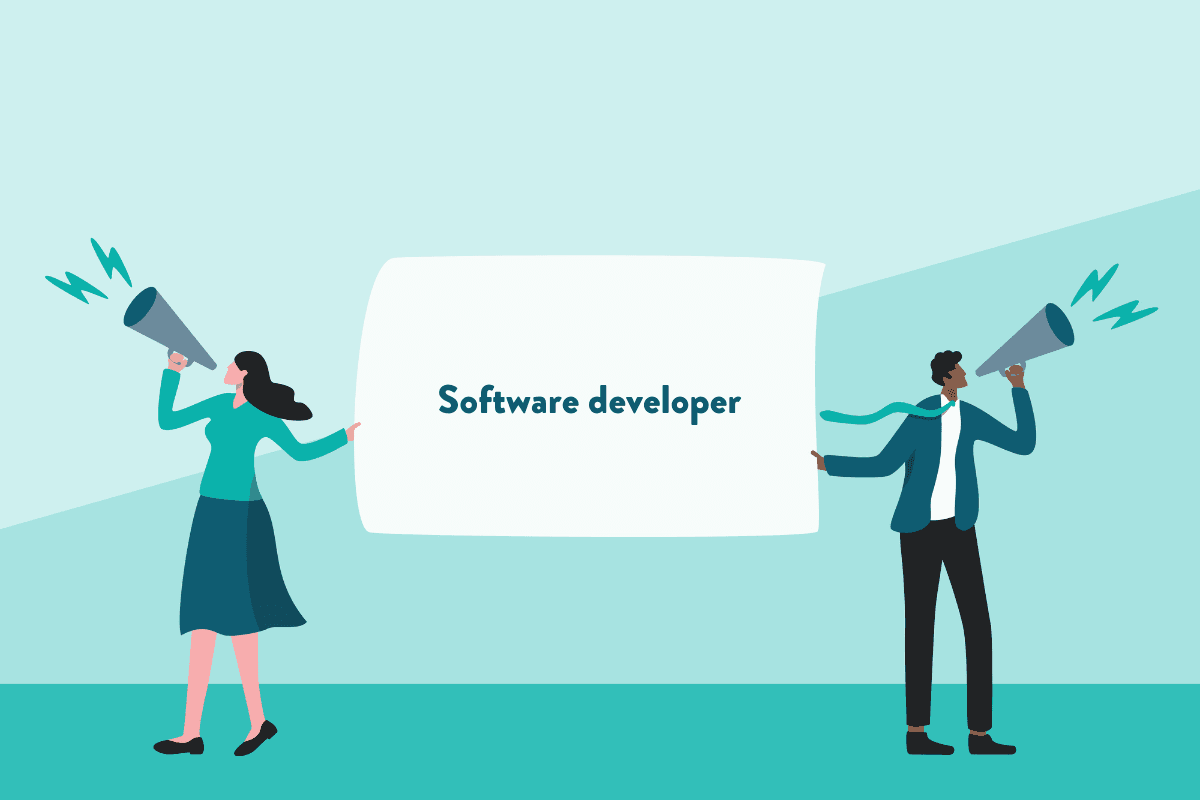Employers and Universities: Work with us?

Software developer
As a software developer, you will write the coding that instructs computers to perform particular tasks. You will be helping to create the many applications that make our lives easier, whether that be at school, at work or at home.
Also known as:
- Applications programmer
- Developer/programmer
- Web developer
Work activities
A typical development project would include:
- Gathering all the program requirements – what task will it perform, and where and how?
- Creating a test version of the required program.
- Checking the test version to make sure it does all it is required to do.
- Writing and developing the actual final version of the program.
- Testing the program, before it actually goes “live”.
- Maintaining the program, to make sure it continues to perform its tasks correctly.
Often you will work in a team, with each person contributing to the final program. You might work closely with project managers, software testers, graphic designers and database managers, for example.
Personal qualities and skills
To be a software developer, you’ll need to:
- Have IT and programming skills.
- Be good at problem solving.
- Pay attention to detail.
- Have excellent teamworking skills.
- Concentrate for long periods of time.
- Manage your time, prioritise tasks and work under the pressure of meeting a deadline.
- Keep accurate records.
- Be prepared to keep up to date with developments in software and programming languages/tools.
Technical skills are highly important in this industry. However, employers have also highlighted the future need for the following non-technical skills:
Pay and opportunities
Salaries for software developers vary depending on the range of their responsibilities, and the size and type of company they work for. You can expect to start on around £24,000 and earn as much as £70,000 with experience.
Your final salary could include performance-related pay, profit share or company bonuses.
Software developers usually work 37-40 hours, Monday to Friday.
Employers include large computer-using organisations, software companies and computer manufacturers. Other employers are small businesses that develop software such as apps for phones, tablets and notebooks. Opportunities for software development occur in towns and cities throughout the UK.
Self-employment opportunities occur for software developers to work on a freelance basis – usually on short-term contracts.
Where are vacancies advertised?
Vacancies are advertised on specialist IT job boards and employers’ websites, in computing magazines and professional journals, in local/national newspapers, and on the Government’s Find a Job and Find an Apprenticeship services. Short-term contract work is found through specialist IT recruitment agencies.
Entry routes and training
You will need higher-level qualifications before you become a software developer. Degrees in relevant subjects are available at many universities. In order to get onto a degree course, you will usually need at least two A-levels.
A level 4 (higher) apprenticeship in the role of software developer is another way to access this carer path. You’ll work towards relevant qualifications while training on the job.
As a software developer, you can progress to senior posts and to project management positions after further training and experience. Some experienced developers work on a freelance basis.
Qualifications
For entry to a degree course in computer science, the usual requirement is:
- Two to three A-levels.
- GCSEs at grades 9-4 in two to three other subjects.
- English and maths at GCSE.
To get onto a higher apprenticeship, you will usually need at least two A-levels. Maths could be required at A-level for some programmes. You’ll also need GCSEs in maths and English.
Alternatives to A-levels include:
- Edexcel (BTEC) level 3 National qualifications.
- International Baccalaureate (IB) diploma.
Adult opportunities
Age limits: It is illegal for any organisation to set age limits for entry to employment, education or training, unless they can show there is a real need to have these limits.
Some new entrants gain skills in computer help desk or similar work before moving on to applications programmer posts.
If you are a graduate with a nonrelevant degree, entry is still possible with some employers. However, taking a one-year information technology postgraduate conversion course will improve your chances.
If you don’t have the qualifications needed to enter your chosen degree course, a college or university Access course, for example, Access to IT/Computing, could be the way in. These courses are designed for people who have not followed the usual routes into higher education. No formal qualifications are usually needed, but you should check this with individual colleges.
Another option would be an HNC in computing on a part-time basis, either evening and/or daytime. Alternatively, taking short intensive courses in specific computing languages with private accredited IT training providers can help you to develop the portfolio of technical skills needed by employers. Courses are available on a flexible, evening, weekend or day part-time basis.
Distance learning opportunities include degree and postgraduate courses in computing and software development.
A range of colleges and universities offer postgraduate degrees in computing and information systems, including at master’s level. Study can be part time/flexible or via distance learning. Courses have been developed in partnership with industry.
Sponsorship for degree-level study of computing can be available through some of the larger IT companies.
